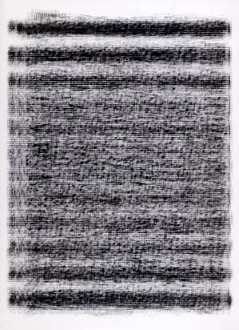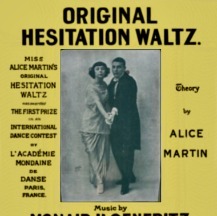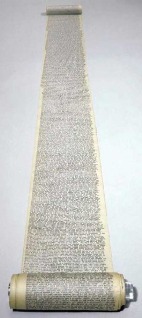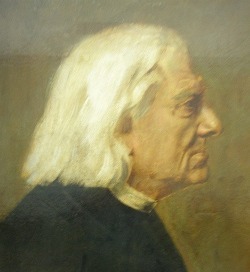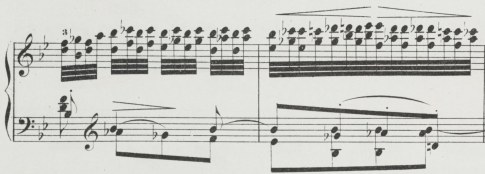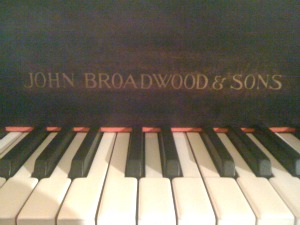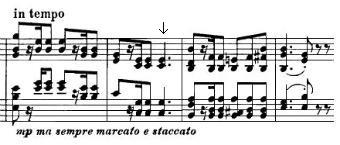Do we covet music that signifies, encodes, or provokes sadness? As a child, when told to play with feeling Jacob Lateiner asked, "Which one?" In classical music, it does seem that emotion has come to mean sadness, or anger. When we see the marking "espressivo" we pour on the sentiment. The no-nonsense American clarinetist Charlie Russo told an over-emoting student: "Put a Band-Aid on it!" Not too many classical players explore emotion in … [Read more...]
Don’t Ask
When I was learning William Duckworth's The Time Curve Preludes, and even preparing to record the first dozen, I did not contact the composer. I didn't play for him, get advice, or even ask him questions about 2 or 3 notes that puzzled me in the printed music, a reproduction of Duckworth's handwriting. After the recording was released, I got an email from Bill, "I understand you've been playing my music..." Classical players usually seek out … [Read more...]
Sic transit pianisti
I return to Rotterdam, and it's as if no time has passed. Four years ago, I left very early in the morning, down a street with wood planks instead of a sidewalk. The construction is long finished, but I return to the thrill of that morning. It was October then too. I did a 2-day seminar in Rotterdam, at Codarts. Following that, something slightly crazy was on my schedule. I'd agreed to play, with several other pianists (Robert Levin, … [Read more...]
Piano ear
Pianists may need different kinds of hearing than what's needed to play the violin. Because the tuning of pitch doesn't require constant attentiveness -- I'm convinced there are rather good piano players who actually hear very little of what's happening as they play. More than other musicians, pianists are likely to intone or moan audibly while playing. It's pretty conclusive evidence that whatever those players hear is not objective. The … [Read more...]
Hesitant and lost
Frequently a pianist may hesitate before an important note of arrival in a phrase. Singers are more likely to stretch after they achieve the important note, hesitating to end it. (It's normal for singers to emphasize sustained vowels. Consonants can usually be prolonged only a limited amount -- even in Italian!) In scripted piano music, waiting just before important notes (especially if they are harmonically expressive) is tied in with knowing … [Read more...]
Of a piece
When I sit at the piano to play a composed piece I'm matching myself against a pre-determined set of musical requirements. Right? I'm trying to meet expectations or even excel to deliver a faithful account of the composition. If that's true, then one performance can be better than another. A performance with many faults might even fail to represent the piece that's written. What is that faulty music? Can it be overlooked or ignored, put out … [Read more...]
Wunderlicher Alter
If teachers of classical music transmit the past, then perhaps older teachers have more direct connection to traditions further away in time. But the culture of the conservatory has changed: the oldest musicians were highly venerated teachers, now they may not be. In old age, some musicians were in great demand as teachers: Rosina Lhevinne, Sascha Gorodnitzki, Ivan Galamian, Joseph Gingold -- and Liszt! In traditional conservatory culture, … [Read more...]
Same Key
"I would accept no hard and fast rule in program-making except one: that works in the same key should not follow one another. A varied succession of keys is required to stimulate the listener's attention." So says Alfred Brendel. That's standard advice about making a classical concert program -- don't play long stretches of music in the same key. Mr. Brendel, for example, rules out playing in one program Schubert's B-flat-Major Sonata and … [Read more...]
No fervor
Hearing Liszt's "Feux follets" at Alice Tully Hall -- it crossed my mind that it was the most accomplished performance of the étude ever played! This solo recital was won by the pianist as part of a competition prize. Tully Hall was mostly empty. No critics and no bloggers were there to document this considerable piano-playing achievement. And that makes sense -- it wasn't "news." It may be puzzling that today's highly accomplished, … [Read more...]
Verismo
During the recording sessions for Nico Muhly's Drones & Piano, sometimes the piano bench squeaked. "Bench was loud," I said, after a particularly squeaky take. Through my earbud, I heard the voice of engineer Paul Evans. "I rather like it," he said. Paul wasn't being entirely serious, but he was hinting (or poking fun?) at an approach to recording that resembles Dogme 95 or "Remodernist" films. As high technology allows us to achieve … [Read more...]
Quick Change Artist
A distinguishing trait of Mozart's music is rapidly and frequently changing character, Affekt, or mood. He's a quick change artist. For the 21st-century listener, it's simplistic to hear only a single unvarying Affekt or character in an entire movement of old music. We tend to hear the changes. Mozart's music may offer an extreme, an almost constantly shifting and evolving rendering of human state-of-mind. It's classical-sonata … [Read more...]
Padded
Piano keys are made of wood that's weighted with metal, and faced with plastic in place of what used to be ivory. They are levers. How exactly a musician touches these sticks may or may not alter the physical sound the piano makes. The cultivation of legato -- the binding together of successive tones produced with flexible wrist -- is an important aspect of classical piano training. Some of us wonder about the science of legato, of what we … [Read more...]
Repetition is a Form of Flattery
Liking the smoked bluefish salad I had at an organically-sourced Brooklyn eatery, I made something like it at home. In preparation for shooting a video last week, I practiced again a piece that I practiced last year for summer concerts, and two years before that to play in Michigan, and thirteen years earlier still... Passing by a store on Broadway that had four identical (mass-produced) lamps hanging in a row, I was prompted to tweet this … [Read more...]
Preparedness
A part of preparing to perform music is a psychic readying -- we need to be prepared to accept very fine results. Perhaps this seems strange, since so much practicing of classical music focuses on avoiding mistakes? Our practice can prepare us to receive. Any sense that we don't deserve or are not entitled to extraordinary music making can impede it. Especially if time is short or preparation is scant, we may play less well than possible … [Read more...]
Stay Down
Playing for me in a recent masterclass, a pianist performed Liszt's etude "Wild Hunt." At the end of two measures of melody (m. 60), he raised his wrists immediately after playing the last note in the bar, releasing his fingers from the keys -- although the notated duration of this sound is the longest in the line. The piano is a device that never came with a set of instructions. In a sense, musicians are always making how-to guides. And … [Read more...]


